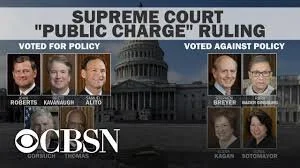A common scenario among our clients is that the client has an immediate relative (spouse, parent, child under the age of 21) who has or who can petition for them with Form I-130 (explained in a previous blog post), but the client entered the U.S. without a visa or inspection. As immigration laws exist currently, a person who has entered the U.S. without a visa or inspection cannot process their residency (green card), which would normally be done with Form I-485, while in the U.S., because they were not originally inspected and admitted (there are some exceptions). The person who is applying for residency must do so from outside the U.S. through “consular processing.”
Read More



